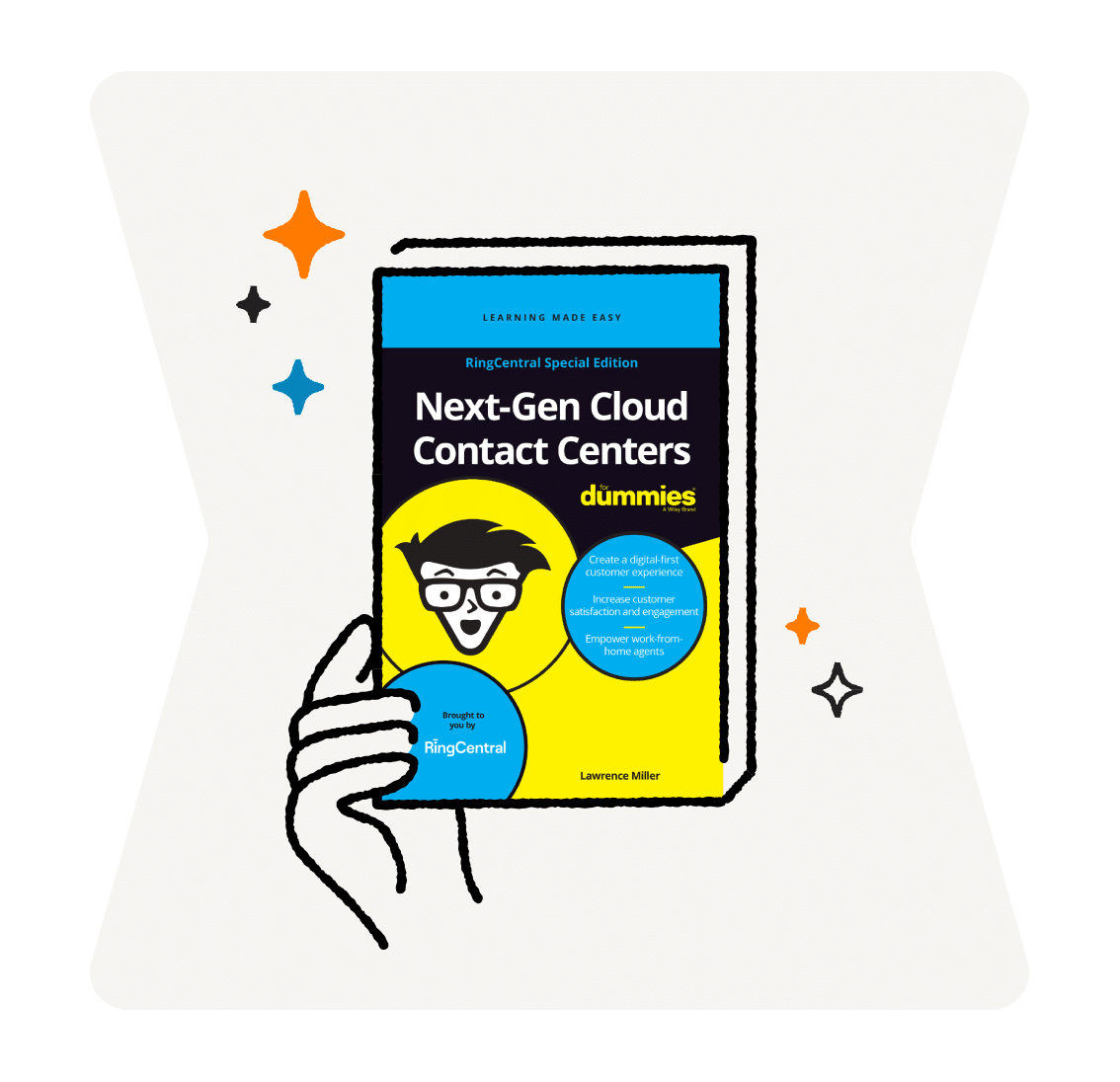Highlights:
- Customers are demanding support that effectively balances quick responses with personalization and automation with a human touch.
- Next-generation cloud contact centers are at the center of the customer experience transformation agenda.
- Next-gen cloud contact centers use unified communications (UC) to deliver superior customer experiences (CX).
- Next-generation cloud-based contact systems deliver compelling benefits to future-facing businesses, such as customer satisfaction, business insights, efficient remote working, and lower operational costs.
Until recently, a call center was a critical prerequisite for any customer-facing business. Most, if not all, organizations treasured their on-premises call centers as the ideal way to interact with customers, sell their products, and address complaints.
Then the digital wave hit, and suddenly, billions of people started connecting through mobile apps and social media. Consequently, the age-old call center model quickly gave way for a more dynamic approach, utilizing various digital solutions to facilitate business-customer interactions. According to IDC, two-thirds of the top 2,000 companies globally are transitioning from offline, on-premises platforms to digital solutions that offer better customer experiences. Furthermore, 34% of these firms believe they will achieve complete customer engagement digitization within the year.
Next-generation cloud contact centers fit right at the center of the customer experience transformation agenda. In this article, we unravel next-gen contact systems as the next phase of customer service by answering the questions below:
- What is a next-gen cloud contact center?
- Why is a next-gen cloud contact center important?
- How can your business gain from a next-gen cloud contact center?
What is a next-gen cloud contact center?
Next-gen cloud contact centers are cloud-based collaborative customer engagement platforms that use unified communications (UC) to deliver superior customer experiences (CX). UC integrates phone calls, team messaging, video meetings, texts, and other channels, to keep customer interaction flowing seamlessly from one communication mode to another.
UC solutions also work with productivity tools like email, cloud storage, file and desktop sharing, customer relationship management (CRM) solutions, and enterprise resource planning (ERP) solutions, giving teams and clients instant access to relevant data across all engagement channels.
Next-gen cloud contact centers enhance UC functionality with artificial intelligence and machine learning. AI/ML helps draw meaningful and actionable insights from data analytics, giving agents the precise and timely information needed to close leads and solve customer issues quickly and efficiently. It also powers automation through intelligent virtual assistants, which can take over repetitive and straightforward customer service tasks, leaving agents free to handle more pressing matters.
Why is a next-gen cloud contact center important?
Today’s typical customer can reach out to a business on social media, move to email, and end the conversation with a phone call. This ever-expanding range of communication channels makes it increasingly difficult for most companies to maintain consistent interaction and uphold customer satisfaction.
To keep the conversation flowing seamlessly as customers move from one channel to the next, your company needs a contact system that can effectively balance quick responses with personalization and automation with a human touch. In other words, you must advance to a next-gen cloud-based center.
How can your business benefit from a next-gen cloud contact center?
Next-gen cloud-based contact centers are the next phase of customer interaction. As a forward-looking business, you can realize a number of significant benefits from the right solution. Read on for four compelling opportunities that a next-gen cloud contact center can unlock for you.
-
Higher customer satisfaction levels
Unlike traditional call centers, a next-generation cloud contact system supports numerous digital channels and gives your customers complete liberty to reach you with their preferred option. A customer can call, text, send an email, or use online chat and get their problem resolved with the same efficiency across all channels. Furthermore, because interaction data is stored in the cloud in real time, agents can access all the information they need to address issues, regardless of the channel they are using.
Additionally, using artificial intelligence, machine learning, and advanced data analytics enables next-gen cloud contact centers to offer intelligent, personalized self-service capabilities. As a result, customers can get human-like responses and timely resolutions, regardless of the time of day.
-
Valuable business insights
Next-gen cloud contact centers tie numerous data points together, creating a unified platform for your service team to access information. As a result, they convert data structures from silos to collaborative, easily accessible systems, where inputs from various groups and departments speak the same language and collectively deliver well-informed insights.
For example, a next-gen cloud contact center can integrate data from modules like orders, deliveries, payments, credit status, and discounts to give you a comprehensive view of customer performance over a period in a single click. That way, you can quickly uncover underlying opportunities to maximize revenue and keep customers happy.
A cloud-based contact center solution can also capture agent-client interactions in real time. This data can provide insights into your team’s problem-solving and customer satisfaction rates, enabling you to aim improvement efforts to the right recipients.
-
Efficient remote working
The COVID-19 pandemic forced millions to migrate workstations from offices to homes almost instantaneously. While many companies struggled to adapt, some quickly grabbed the chance to speed past the competition by adopting cloud-based solutions for seamless out-of-office operations.
Although the general workforce will return to work sooner or later, remote working models have proven viable for numerous businesses. A McKinsey & Company survey found that, on average, companies were planning to reduce office space by 30%, translating into millions of direct and indirect savings. Therefore, rather than welcoming employees back to the office, businesses are expected to rethink working schedules and consider permanent work-from-home arrangements for remote-ready functions, such as customer service.
Remote working also allows contact centers to pull from a much larger pool of qualified agents because cloud-based contact centers are not constrained by geographic locations. With a wider pool of talent from which to choose, contact centers can quickly see gains in the quality of their hires.
A next-gen cloud contact center supports remote working by giving agents full access to data systems and communication platforms regardless of their physical location. As a result, customer service teams can achieve the same level of client engagement at home as in the office, and contact centers can benefit from an expanded talent pool.
-
Lower Operational Costs
A fair chunk of the costs associated with business operations goes to maintaining physical premises. A substantial budget piece goes to real estate through rent and leases, followed by utilities, office supplies, cleaning services, connectivity, ad-hoc repairs, and more. Because a next-gen cloud data center enhances work-from-home models, it can help you reduce your footprint and gain from lower operational costs.
Moreover, studies indicate that remote workers can save as much as $7,800 annually on expenses like commuting, day-care, and even after-hour socializing. These savings can translate to a less stressed and more productive contact center staff. Considering that contact centers can have up to 100% turnover rates in a single year, keeping agents as stress-free and as productive as possible adds up to reduced agent churn and significant savings in the recruitment, onboarding, and training of new agents.
Get started with a next-gen cloud contact center today
With customer preferences rapidly evolving and markets increasingly digitized, businesses must develop customer-centric service strategies that go above and beyond to deliver outstanding experiences. A next-generation cloud contact center is the only way to equip your customer service agents with the tools and capabilities they need to stand out from the competition.
Transitioning to an integrated cloud-based contact center is both good for your bottom line and good for your customers and agents. With the right solutions provider, you can make the transformative leap with ease and begin reaping the benefits sooner rather than later.

Want to learn more about next-gen contact centers? Download the ebook “Next-Gen Cloud Contact Centers for Dummies” today and learn how to start delivering the experiences your customers have come to expect from a next-gen contact center.
Originally published Sep 23, 2021, updated Jun 20, 2024





